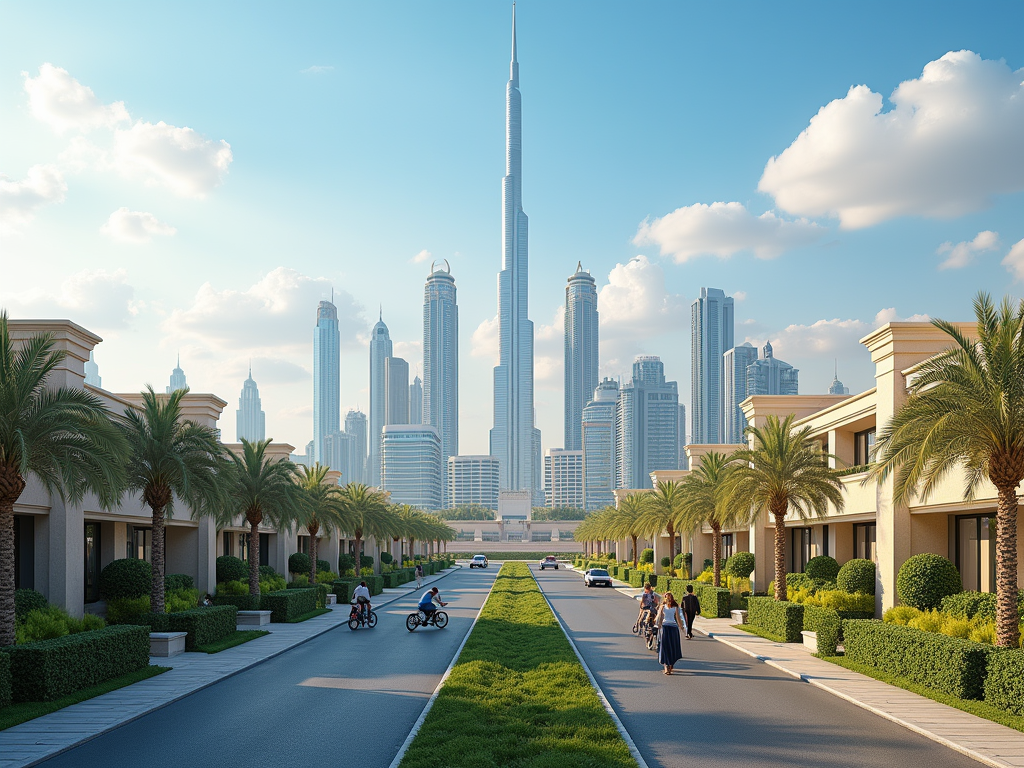The real estate market in Dubai has long been considered a lucrative option for foreign investors seeking opportunities in the global marketplace. Despite fluctuations and various economic challenges, Dubai continues to stand as a robust investment destination. The combination of high rental yields, tax benefits, and a favorable regulatory environment make it an attractive prospect. However, with the ever-evolving market dynamics, potential investors often wonder whether or not Dubai’s property market remains a reliable investment. In this article, we will delve into the current state of the market, key factors influencing it, and whether it remains a safe bet for foreign investors.
Current State of the Dubai Property Market

The Dubai property market has shown resilience and an upward trend in recent years, recovering from previous downturns. After experiencing declines during the global financial crisis and the COVID-19 pandemic, the market has revitalized, leading to increased investor confidence. According to recent reports, property prices have stabilized, and trends show a gradual increase in demand, especially in the luxury sector. The government’s initiatives to promote foreign investments have played a significant role in this recovery. Additionally, the upcoming events like Expo 2020 have positioned Dubai favorably among international investors, thereby enhancing market interest.
Factors Influencing Investment Decisions

When considering whether to invest in Dubai’s property market, several factors come into play that can influence investment decisions. Prospective buyers should take into account:
- Regulatory Environment: The UAE government has implemented progressive laws that not only facilitate property ownership for foreigners but also ensure a transparent buying process.
- Rental Yields: Dubai boasts some of the highest rental yields globally, often reaching between 5% to 9%, making it an appealing option for investors looking for returns.
- Economic Stability: As one of the most stable economies in the Middle East, driven by tourism, banking, and trade, Dubai offers a secure backdrop for property investments.
- Diverse Property Options: Investors can choose from a variety of property types ranging from luxury villas to budget apartments, catering to different financial capacities and preferences.
- Infrastructure Development: Continuous investments in infrastructure and development projects enhance property values and attract more residents and expatriates to the city.
Potential Risks to Consider
While Dubai’s property market offers numerous advantages, potential investors should also be cognizant of several risks that could impact their investments:
- Market Volatility: Like any real estate market, Dubai’s market can be subject to fluctuations that may affect property prices and rental rates.
- Regulatory Changes: Keeping up with evolving laws and regulations can be challenging, and any sudden changes can affect investment returns.
- Over Supply: The rapid construction of new developments has led to concerns about over-supply, particularly in certain segments of the market.
- Economic Dependency: The market remains heavily dependent on sectors like tourism and trade, which can be impacted by global economic changes or decline.
The long-term outlook for Dubai’s property market remains positive, bolstered by significant government initiatives aimed at enhancing its global standing as an investment hub. Investors can expect to see continued growth in sectors like tourism, technology, and infrastructure, thus, further stabilizing property values. New policies aimed at attracting expatriates and international business are constant, making long-term residency and investment more attractive than before. It is vital for potential investors to conduct thorough market research, consult with local experts, and stay informed about any geopolitical or economic changes that may impact their investment strategy.
Conclusion
In conclusion, Dubai’s property market continues to present itself as a reliable and attractive option for foreign investors. While there are inherent risks, the advantages such as high rental yields, robust infrastructure, and a favorable regulatory framework significantly outweigh these concerns. With careful assessment and strategic planning, investors can successfully navigate the ever-evolving landscape and capitalize on the numerous opportunities available in Dubai.
Frequently Asked Questions
1. Is it safe for foreign investors to buy property in Dubai?
Yes, it is generally safe for foreign investors to buy property in Dubai due to the regulatory framework established by the UAE government, which protects both local and foreign buyers.
2. What are the average rental yields in Dubai?
The average rental yields in Dubai typically range between 5% to 9%, with some high-demand areas offering even higher returns.
3. Are there any restrictions on foreign ownership of property in Dubai?
Foreigners can own property in designated areas known as freehold areas, where they can acquire either residential or commercial properties without restrictions.
4. What should I consider when investing in Dubai’s real estate market?
Consider factors such as location, property type, market conditions, rental yields, and regulatory aspects, all of which can significantly impact your investment decision.
5. How has the COVID-19 pandemic affected Dubai’s property market?
While the Dubai property market experienced a temporary downturn during the pandemic, it has since shown signs of recovery, driven by government stimulus measures and an increase in international interest.
